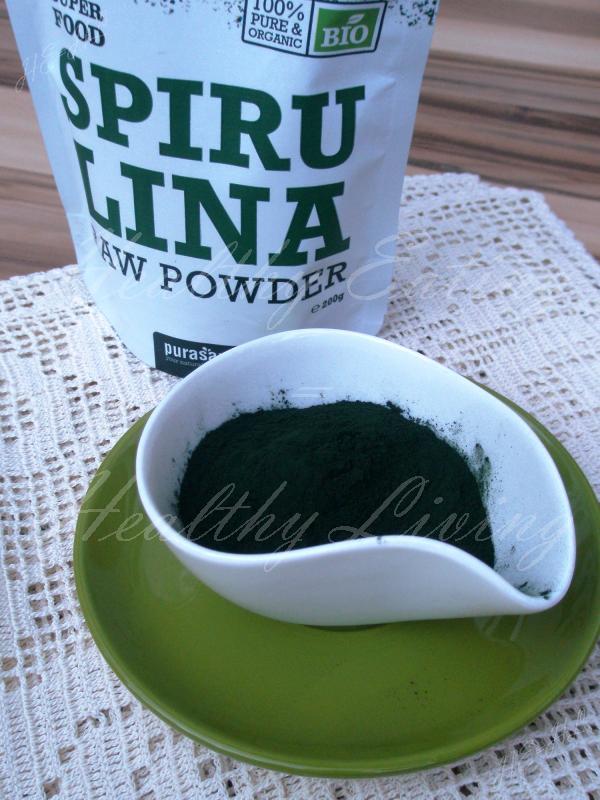Spirulina is a wild growing alga, which resides in warm waters around the world since 3.5 billion years. It was first consumed by Chinese, South American and African inhabitants. It is rich in nutrients. It’s green color is a result of chlorophyll content, which has purifying capabilities.
Spirulina is a good source of easily absorbed protein (protein content is around 50-75%), vitamins and minerals (e.g. magnesium, potassium, folic acid, manganese, zink, coper, calcium , vitamins A, B1, B2, B3, B6, E and vitamin C). It contains more B-group vitamins then fruits or vegetables. It contains more iron than any kind of meat. This alga is one of the rich sources of amino acids among foods. Amino acids are responsible for building up muscles, brain functions, ensure good well being and health. In addition, high beta carotene and other carotenoids content strengthens immune system. Gamma-linolenic acid contained in spirulina reduces cholesterol, which helps in prevention of heart disease, vascular system, and high blood pressure problems. Chlorophyll and phycocyanin ensure proper digestion. Thanks to dietary fiber, spirulina can be used as support for weight loss, despite it does not reduce appetite. Additional positive feature of spirulina is its low glycemic index.
Suspicions that spirulina might contain toxins as other cyanobacteria occurred to be false. It is recommended to smokers, and people consuming large amounts of alcohol, coffee or tea, while it neutralizes parts of the toxins contained in those products. It also helps to remove heave metals from the body.
Research on human and animal cells allow to conclude that spirulina has wide spectrum of positive effects on the body. Antivirus, antibacterial and antiallergic properties of spirulina has been shown, and even it is hypothesized that it can help in cancer prevention. It can be used during medication of peptic ulcer, diabetes and anemia.
Spirulina is available as tablets and powder. It is advised for athletes and vegetarians. Its main benefit is its fast digestion and the absorption of its elements. It is also used in cosmetics industry or for making fish food.
When spirulina starts to work, allergy sufferers can experience side effects . It is therefore good to know what to expect, despite, spirulina being recommended component of each diet. Most web pages describe only the positive effects of spirulina inclusion in diet, however several side effects can happen:
- constipation can happen due to increased water requirement while digesting spirulina,
- Stomach ache in case of overdose,
- problems with liver and kidney function also due to overdose,
- dizziness, which usually passes after several days,
- increased body temperature due to large protein content, which result in heat production while digestion,
- rash,
- nose bleeds.

Check out our recipes:
Sources:
A. Duda-Chodak, Ł. Wajda, M. Kobus, M. Kubica, T. Tarko: Wpływ bakterii z rodzaju Arthrospira na funkcjonowanie układu immunologicznego. „Postępy Mikrobiologii” 2010, nr 1, ss. 15-23.
D. http://www.australianspirulina.com.au




